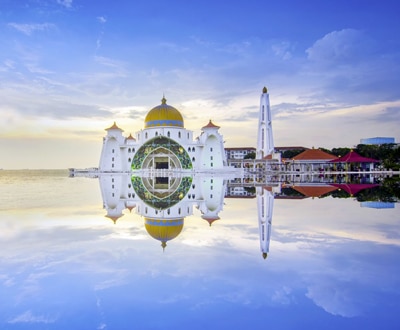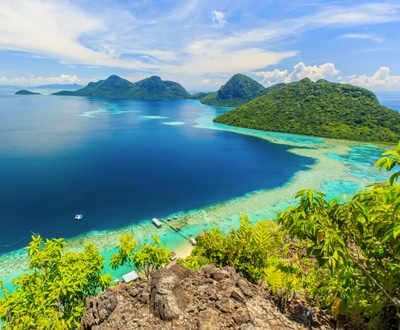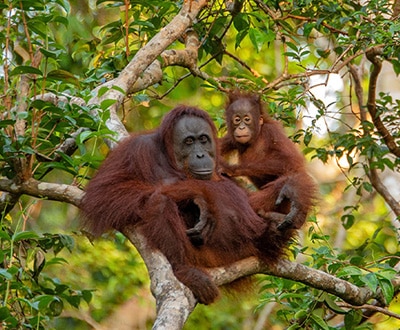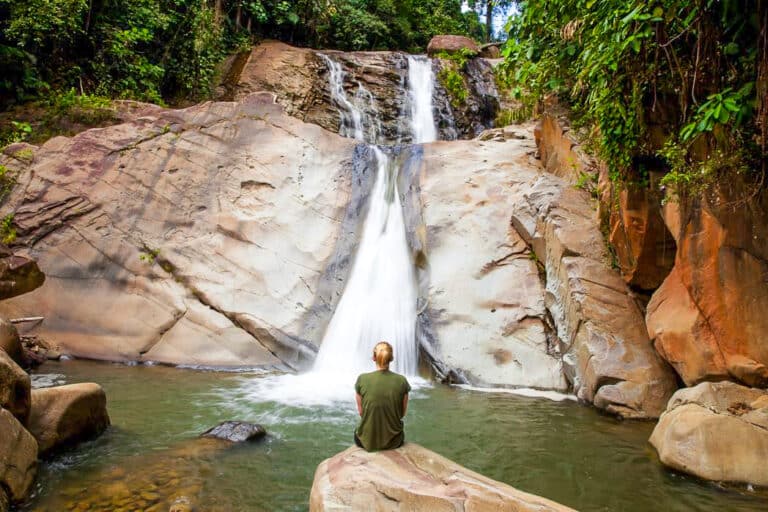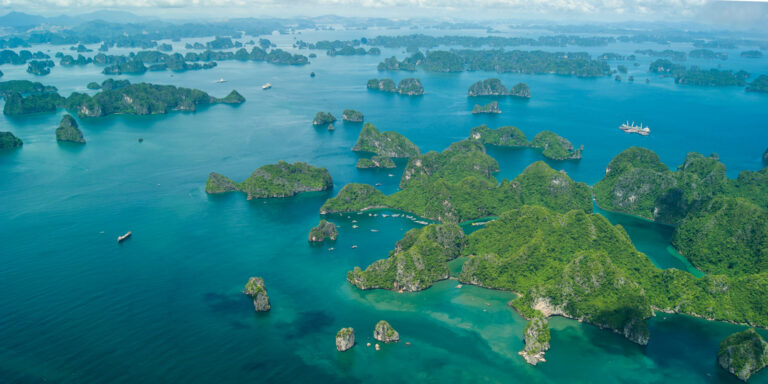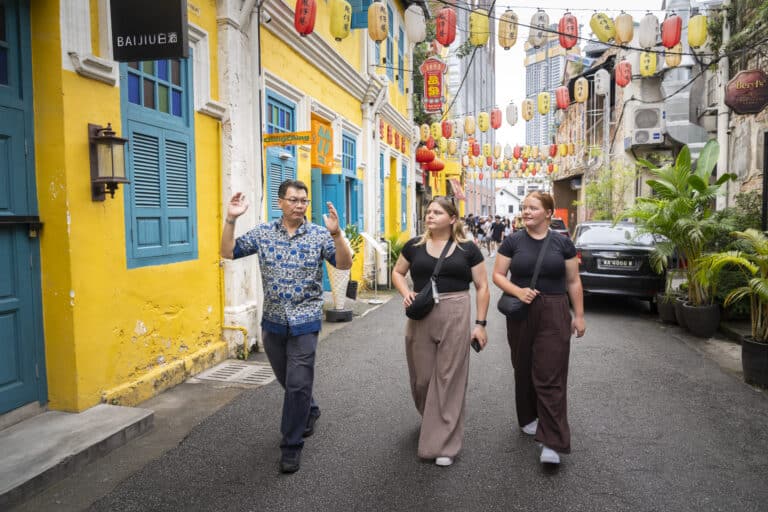

to Malaysia & Borneo
Known for its stunning beaches, highlands and rainforests Malaysia is also a true melting pot of cultures, with Chinese, Malay, Indian, and European influences. The Peninsula offers frenetic cities with towering skylines, street art, tea plantations, and some of the world’s best street food, while Borneo is home to ancient jungles, rare wildlife, rugged mountains, and some of the world’s best scuba diving.
Some inspiration for Malaysia & Borneo...
Classic Peninsula Malaysia
7 day / 6 night itinerary
A few of our favourite
experiences...
KL’s Urban Charm Food Tour
Kuala Lumpur
Start the tour by trying a signature local dessert made with shaved ice. Next, we visit the centre of KL’s Indian community and savour delicious flatbread and curry. Later, we walk further up the road to taste tender and juicy beef meatballs served in hot soup inside a 70-year-old restaurant. End the evening on a triumphant note by sampling claypot chicken rice, which is undoubtedly one of the most popular Chinese dishes in Malaysia.
Discova the difference
This evening’s culinary journey is a diverse exploration of Malaysia’s Chinese, Indian and Malay heritage and takes you through the food courts and frenetic streets of Kuala Lumpur to try some of its best food.
Batu Caves Cultural Exploration Tour
Kuala Lumpur
Take the train out of KL Sentral station to explore one of Malaysia’s most important Hindu temples which lies within an impressive cave system. Here your guide will help you understand the religious roots of Hinduism in this diverse nation. After working up an appetite in the caves, arrive at one the city’s busiest streets, Jalan Masjid India, lined with an array of delicious food before sitting down to enjoy your feast.
Discova the difference
On this tour we visit not just Batu Caves, but a lesser-known and captivating temple, that is based on three teachings of Chinese philosophy. An authentic local lunch served on banana leaf is also a highlight of this tour.
Things to Know
Capital City: Kuala Lumpur
Population: 32.7 million
Language: Malay – officially, Bahasa Malaysia – is the national language, and Malay and English are both recognised as official languages. English is taught in all schools and widely spoken in large cities. Because the country is so culturally diverse, a range of secondary languages are also spoken, like Tamil, Chinese or Arabic. Many locals also speak a kind of creole called “Manglish”, a quirky blend of all of the above.
Currency: The Malaysian ringgit (RM) is the official currency. Money can be changed at moneychangers in most urban areas and tourist centres, but many of these only take crisp bills in good condition. ATMs are widely available, though not all of them are able to read cards with chips. Many hotels and malls will accept credit and debit cards in main cities but be sure to have ringgit on hand for more rural adventures.
Visitors from most countries are permitted to enter Malaysia for a period of 14, 30, or 90 days without a visa. Foreign nationals who do need a visa to enter Malaysia may need to obtain a visa or transit pass in order to travel through a Malaysian airport. A handful of countries are eligible to apply for an eVisa; otherwise, a Malaysian visa can be obtained at any overseas Malaysian embassy.
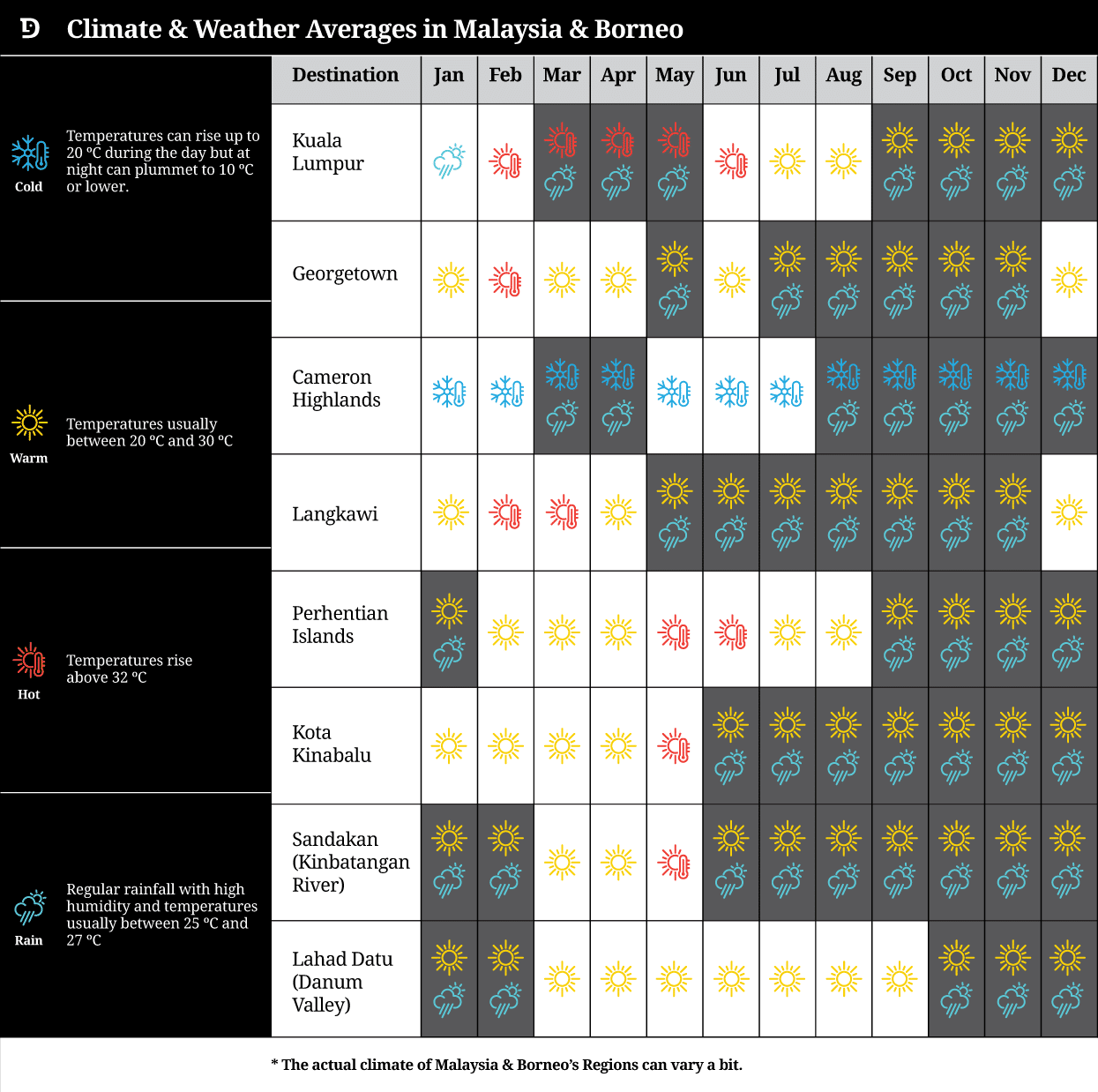
View or download our Malaysia & Borneo Destination Guide
Want to know more?
If you’d like to find out more about Malaysia & Borneo or get in touch with one of our agents, we’d love to hear from you!


